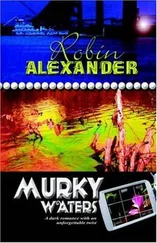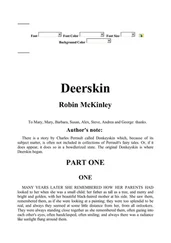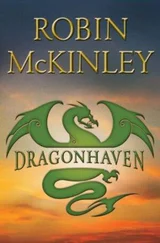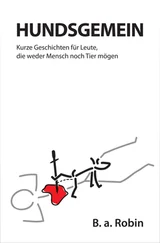Robin McKinley - Water
Здесь есть возможность читать онлайн «Robin McKinley - Water» весь текст электронной книги совершенно бесплатно (целиком полную версию без сокращений). В некоторых случаях можно слушать аудио, скачать через торрент в формате fb2 и присутствует краткое содержание. Год выпуска: 2002, ISBN: 2002, Издательство: Firebird, Жанр: Старинная литература, на английском языке. Описание произведения, (предисловие) а так же отзывы посетителей доступны на портале библиотеки ЛибКат.
- Название:Water
- Автор:
- Издательство:Firebird
- Жанр:
- Год:2002
- ISBN:9780142402443
- Рейтинг книги:4 / 5. Голосов: 1
-
Избранное:Добавить в избранное
- Отзывы:
-
Ваша оценка:
- 80
- 1
- 2
- 3
- 4
- 5
Water: краткое содержание, описание и аннотация
Предлагаем к чтению аннотацию, описание, краткое содержание или предисловие (зависит от того, что написал сам автор книги «Water»). Если вы не нашли необходимую информацию о книге — напишите в комментариях, мы постараемся отыскать её.
Water — читать онлайн бесплатно полную книгу (весь текст) целиком
Ниже представлен текст книги, разбитый по страницам. Система сохранения места последней прочитанной страницы, позволяет с удобством читать онлайн бесплатно книгу «Water», без необходимости каждый раз заново искать на чём Вы остановились. Поставьте закладку, и сможете в любой момент перейти на страницу, на которой закончили чтение.
Интервал:
Закладка:
It had happened in the instant of turning. Before, still diving, she had been afraid, of the dark, of the cold, of going too deep to return, ordinary flesh-and-blood fears. This, filling her body as she forced her way upward, was terror. It was as if the cold and the dark had made themselves into a thing, alive, but huge as the immense underdeeps, dark beyond black, cold beyond ice, something that had been waiting there for the lovers to fall into its ice and dark, but now, now that she was dragging them back . . . She had not let go only because the nightmare had locked the muscles of her grip like iron.
She did not notice passing through the limit. Something broke into her nightmare, a soft touch against her cheek, Carn’s querying snout. And it was no longer dark. Almost, but not quite. In wonder she looked up and saw that though she was still many lengths deep she could see far above her the ripple-pattern of the sunlit waves. She was exhausted, her heart thundering, her gills aching with the effort to sift the rush of water. There was a pain in her hand from the ferocity of her grip, and a fierce ache running up her arm from the wrenching weight she had dragged from below. She looked down and made out that she was holding the scabbard of a sword, still fastened to its belt, and the belt was buckled round the bodies of the two airfolk she had seen leap from the ship.
They wavered below her, a man and a woman, he in dark armour, she in a strange white covering which hid all but her head and her hands. (Merfolk wear armour if they need to but have no use for clothes.) This covering had glittered in the sun, and glinted now in the dimness, because it was sewn with innumerable seed pearls, among which were fastened many greater jewels. The faces were calm and pale, their eyes open but unseeing. The woman’s dark hair floated all around them.
I am too late, thought Ailsa. They are dead. But still it did not cross her mind to leave them to drift down into the cold and dark below, and the things of cold and dark that waited for them there.
Carn was fidgety, but Ailsa murmured to steady him while she made her arrangements. She slid the sword into the scabbard to get it out of the way, unclipped the lead rope and ran it through the shoulder strap of the man’s swordbelt, and then clipped it to the load hook so that Carn could take the weight. Now with both hands free she found the buckles on the man’s armour and undid them. The thigh-pieces came loose and fell, but the body armour was held fast by the sword belt. She tied the loose end of the lead rope round the woman’s chest, beneath the arms, and, supporting the man’s weight in the crook of her elbow, managed to undo the buckle. The body armour was hinged at the shoulders, like a clam shell, with a hole for the man’s neck. She eased the contraption over his head and let it fall. Below it she found that he too was wearing a covering, a soft brown stuff like cured sharkskin. She refastened his swordbelt round him, and retied the lead rope round his chest so that the two bodies, almost weightless now without the armour, floated side by side from the load hook. Finally she adjusted the harness as best she could to balance her own body against the trailing load, and clipped herself in. Before she flicked her tail to set Carn going, she cast a look down into the black deeps beneath her.
They were nearer than they had been. The limit itself was moving. She knew it, though she could feel no change in the water around her. The underdeeps—that whole immense mass of cold and dark—were rising towards her. Terror, nightmare, swept through her as before. Carn bolted.
He surged for the surface, for the warm and golden water beneath the wave roots. Once there, he levelled and surged on, still in a crazed panic beyond Ailsa’s control. His madness had the effect of blocking her own, by giving her something urgent to do. At first she tried to master him, to force his head round, to pierce through his panic with shouted commands. She reached and gripped the bit-ring and heaved with all her strength. She had heard her father’s huntmaster, Desmar, describe having done this with a bolting blue-fin, but Carn was too strong for her.
Then she realised that at least he was bolting for home. Her best hope was to let him have his way. But swimming at full surge all that distance, with the inert load of the airfolk trailing behind, he could injure himself beyond recovery. Last year a group of young nobles racing for wagers on half-trained stock had brought them home in such a state that her father, furious, had banished the riders to remote reefs. Two of the fish had had to be put down. She would not let that happen to Carn.
It still did not cross Ailsa’s mind to abandon the airfolk. She was sure that, having done what she had, she must now go through with it, and face whatever punishments she must. There was something about the woman, not only the covering and jewels that she wore, but the way that she had stood and moved, had held herself in the face of death, that spoke to Ailsa. She too was a king’s daughter.
With one hand she clasped the grip and with the other unclipped her harness and free-rode. Now she had to transfer herself across Carn’s body, round behind the big forefin. This was riding-school stuff, to be done at a steady pulse. She’d never tried it at full surge in the open sea. She shifted her left hand down to the centre-belt, which circled Carn’s body just in front of the forefin, let go of the grip and trailed at arm’s length. Now she changed hands on the belt and with her left arm reached round behind the fin and felt and found the belt again at the limit of her stretch. Arching her body so that the rush of water lifted her clear of Carn’s, she let a twist of her tail flip her across the spiny ridge that ran from forefin to afterfin, and she was there. She rested a moment, transferred her right hand to grip the load hook, and then with a straining effort used her left to haul on the doubled lead rope until she had enough slack to thumb the loop off the hook and let go. As soon as he was free of the dragging load, Carn surged away, out of sight.
After that it was a matter of working out the easiest way for her to tow the two bodies. She finished with the rope running over the back of her neck and the airfolk trailing, one on each side, leaving her arms free to balance the load against the thrust of her tail. When the rope began to chafe her neck, she stopped and unfastened the top half of the man’s covering. To her surprise he was wearing yet another layer of covering, a fine white stuff with delicate patterns at wrist and neck. She used the top covering to pad the rope where it chafed, and swam on.
As she toiled along, she brooded on the uncomfortable certainty that she must now face her father and explain not only that morning’s delinquency—she had known what she would say about that before she set out—but her dealings with the airfolk. By custom so strong that it was almost law, merfolk had nothing to do with airfolk. All tales of such meetings ended in grief. Why should this be any different? It was some while before she became aware of a quite different kind of unease, coming not from inside her but from somewhere outside. Somewhere below.
At first she told herself that it was a sort of aftershock, a leftover bit of the panic that had gripped her in the cold and dark below the limit. She tried to drive it away by returning to the problem of what she could say to her father. She was still quite sure that she had been right to do what she’d done, but how could she put her reasons into words? They were all to do with the moment at which the man and the woman had stood on the rail of the ship and by the force of their love for each other had made that moment into a lifetime. How could she make anyone else see that? To do so, they would need to see the moment.
Читать дальшеИнтервал:
Закладка:
Похожие книги на «Water»
Представляем Вашему вниманию похожие книги на «Water» списком для выбора. Мы отобрали схожую по названию и смыслу литературу в надежде предоставить читателям больше вариантов отыскать новые, интересные, ещё непрочитанные произведения.
Обсуждение, отзывы о книге «Water» и просто собственные мнения читателей. Оставьте ваши комментарии, напишите, что Вы думаете о произведении, его смысле или главных героях. Укажите что конкретно понравилось, а что нет, и почему Вы так считаете.












